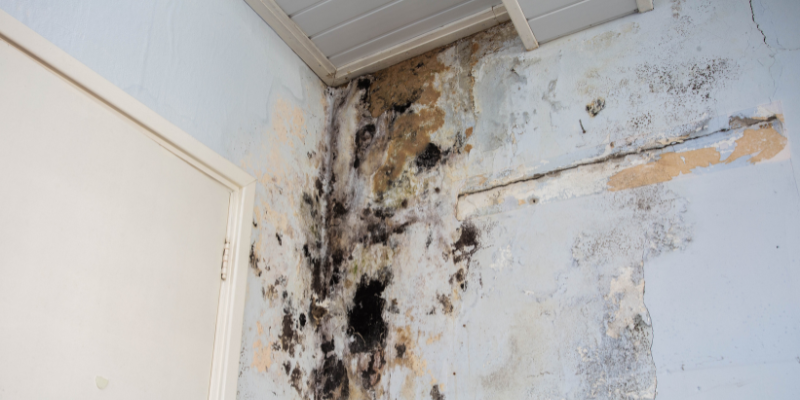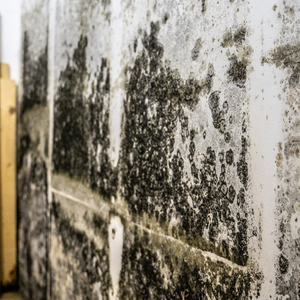
If you are an Oregon homeowner, you need to address certain legal and environmental concerns when you are selling a home that has mold. For a home sale to be successful, these challenges need to be resolved in a certain way. This guide outlines the most important steps in removing mold to help you follow the law and achieve the best market potential for your home. From small patches of mold to severe mold problems, Northwest Real Estate Solutions can assist you in putting your home in prime condition for a more favorable sale and to secure your equity in the Oregon real estate market, which is one of the most competitive in the country.
Brief Overview
In the state of Oregon, selling a property that has mold requires knowledge of applicable laws, especially disclosure obligations. This includes providing a disclosure statement that outlines the defects that mold entails. Documenting prompt attention to mold issues in your disclosure statement mitigates any perception of bad faith on your part. It builds a noncontractual obligation of good faith that is fundamental to any transaction. Completing thorough inspections and professional remediation can enhance property appeal, even with mold. Alternatively, selling the property “as-is” may appeal to investor home buyers in Oregon and nearby cities, but this approach requires careful attention to legal loopholes to avoid buyer backlash.
Key Highlights
- Selling a house in Oregon that has mold requires a strategy and handling porous mold problems.
- Oregon’s law requires the disclosure of all property defects, even mold.
- Obtaining a professional mold inspection greatly reduces the potential of a disrupted sale and a lawsuit.
- Well-documented and thorough remediation minimizes the legal risk.
- Selling “as-is” may attract some buyers, but for them and you, they may require you to handle the legal risk more in the exposed price.
Understanding Oregon Law and House Selling
Selling a house in Oregon, especially one with mold, requires local law knowledge. Oregon law requires seller disclosures about property conditions, including mold. Oregon sellers must navigate this legal landscape to comply and avoid legal issues. Before listing your home, know your obligations and how mold can affect the sale. This benefits sellers and buyers by ensuring property transaction transparency. Important topics like mold disclosures and Oregon seller legal obligations are covered below.
Navigating Oregon Law Around Mold Disclosures
Sellers must disclose all material defects, including mold, that could affect a property’s safety or value in Oregon. Seller disclosure statements, which ensure transparency and protect both parties in real estate transactions, must disclose mold. Failure to disclose can result in legal action or sale cancellation.
Sellers should disclose mold inspections, damage, and remediation to comply. Oregon’s damp climate can worsen mold problems, so get a professional inspection before listing. Doing so helps sellers find hidden mold, repair it, and provide accurate information to buyers, reducing disputes.
Being upfront about mold issues builds buyer trust and responsible ownership. Oregon sellers who follow disclosure laws and provide full documentation can avoid legal issues and make their property more appealing to buyers, speeding up sales.
Legal Obligations for Oregon Sellers with Mold

Oregon law requires home sellers to disclose material defects, including mold, that could affect value or safety. This disclosure must include current and past mold issues and remediation efforts. Selling without disclosure can result in legal action or sale cancellation, so sellers must be transparent.
Professional mold inspections before listing help sellers comply with state laws and show diligence. Buyers are reassured by inspection results that the home is safe. This proactive approach builds trust, smooths negotiations, and boosts buyer confidence.
Before listing, fix mold and document all repairs to meet legal requirements and boost property value, as well as when selling a fire-damaged house. Sellers who follow Oregon’s disclosure laws avoid disputes and increase their chances of selling. Compliance and transparency are essential to building trust and closing deals in Oregon’s real estate market, especially when selling a fire-damaged house.
Recognizing Material Defects in Property Sales
Selling property in Oregon, especially with mold, requires knowing what a material defect is. Material defects that could affect a property’s value or safety must be disclosed by sellers. This section defines Oregon property material defects and emphasizes seller disclosure for property transactions. Whether you’re dealing with mold or other defects, disclosure can make or break a sale.
What Constitutes a Material Defect in Your Oregon Property?
Material defects significantly impact a home’s value, safety, or livability. Mold is a material defect in Oregon because it can harm health and property. In the state’s damp climate, even minor mold issues can quickly worsen, so sellers must detect and disclose early.
Sellers should conduct a thorough home or mold inspection before listing, as some defects may be hidden. A standard inspection may miss mold in basements, attics, or walls. Early detection and resolution of these issues streamlines negotiations and prevents buyer due diligence surprises.
Sellers must disclose all material defects, including mold, in their property disclosure statement in Oregon. Transparent inspection and remediation results build buyer trust. Honest communication builds trust and facilitates a fair, efficient home sale, while not disclosing can result in legal issues.
The Importance of Seller Disclosure in Home Transactions

Selling and buying in Oregon requires seller disclosure to ensure honesty and transparency. Disclosure helps buyers make informed decisions and avoid disputes about mold or other defects. Truthful reporting of known issues shows integrity and Oregon property law compliance.
Full disclosure builds trust and speeds sales. Sellers disclosing mold issues and remediation efforts are appreciated by buyers. Openness assures buyers that the property has been well-maintained and reduces negotiation delays.
Failing to report defects can result in financial losses and legal consequences. Omitting mold-related information can land sellers in court under Oregon law. Sellers protect themselves legally, increase their home’s marketability, and build trust by using accurate disclosures.
Assessing Mold Risks Before Selling
Mold risk assessment is essential before selling a house in Oregon. Knowing when to inspect for mold can prevent disputes and loss of sale proceeds. Addressing mold issues early ensures Oregon law compliance and boosts property value. How to choose the right time for a mold inspection and how to fix mold issues before selling your home are covered in this section.
When to Consider a Mold Inspection for Your House
Mold can lower a home’s value and sale in Oregon’s damp climate. When mold, water damage, or moisture issues are present, sellers should schedule a mold inspection. Pre-listing inspections help identify issues and avoid negotiation setbacks.
A professional mold inspection before selling your home ensures transparency and buyer confidence. Certified inspectors can find mold in basements and attics and provide disclosure statement reports. Addressing these issues early reduces Oregon’s strict property disclosure legal risks.
Timely mold inspections demonstrate property care beyond compliance. Disclosure of inspection and remediation results reassures buyers and builds trust. This proactive step can boost your home’s marketability, speed up the sale, and give you an edge in Oregon’s real estate market.
Preparing Your Home for Sale by Addressing Mold Issues

Before listing your Oregon home, fix any mold issues to avoid buyer reluctance and negotiation issues. Get a professional inspection to find visible and hidden mold, especially in moist areas. Prevention of sales issues requires early detection and transparency.
Schedule professional remediation to clean, repair, and improve ventilation and drainage after identification. These steps protect your home and show buyers that you’ve taken care of it. Your seller disclosure should include comprehensive remediation documentation to comply with Oregon property laws and reassure buyers.
To increase appeal and value, treat affected areas with mold-resistant paint, new flooring, or drywall repairs. To show long-term care, share your moisture control maintenance plan. Addressing mold issues before listing improves your chances of a faster, smoother sale in Oregon’s real estate market.
Strategies for Successfully Selling a House with Mold
Selling a moldy Oregon home requires strategy and knowledge of local laws. According to seller disclosure laws, mold issues must be addressed proactively and disclosed to buyers. Proper remediation can increase property value, and Oregon’s “as-is” sale options give sellers flexibility. Sellers can reduce legal risks and build trust with informed strategies to sell real estate successfully. We buy houses in Portland and nearby Oregon communities and can help you sell quickly, even with mold issues.
Remediation Tips and Tricks for Mold-Infested Homes
Oregon home sellers must remove mold before selling to maintain value and buyer confidence. Professional mold inspections reveal hidden issues and contamination levels. Certification allows inspectors to find problems in basements and attics and recommend Oregon-specific treatments.
Remediation should include deep cleaning with mold-killing products, repairing or replacing damaged materials, and improving ventilation to prevent recurrence. Installing dehumidifiers or high-efficiency air filters, fixing leaks, and improving drainage can control moisture. Include all remediation efforts in your property disclosure to build trust and comply with Oregon law.
Refinishing with mold-resistant primer, replacing flooring, or using moisture-resistant materials can boost appeal after remediation. Your home may stand out in Oregon’s competitive real estate market if you emphasize eco-friendly cleaning and repairs.
These efforts strengthen a property’s marketing, showing new buyers comprehensive care and future-proofing.
| Remediation Steps | Selling “As-Is” | Negotiation Tips | Legal Considerations |
|---|---|---|---|
| Identify mold source | Disclose mold issues | Be transparent | Understand liability |
| Hire certified professionals | Price competitively | Use mold to negotiate | Follow state laws |
| Ensure thorough removal | Target cash buyers | Highlight strengths | Provide necessary documentation |
| Prevent future growth | Emphasize potential | Consider cost-sharing | Consult legal advice |
This table illustrates the strategic approaches and decisions sellers face when dealing with mold issues, highlighting compliance and market positioning.
Should You Market Your Home “As-Is” in Oregon?
Selling an Oregon mold-damaged house “as-is” saves time and money but is difficult. This method attracts quick sellers by selling your home without repairs. To comply with Oregon’s strict property disclosure laws, mold problems must be disclosed.
Selling “as-is” avoids costly remediation and attracts cash buyers or investors willing to renovate. Complete disclosure statements and recent mold inspection reports help sellers build trust. Clear communication prevents misunderstandings and boosts buyer confidence.
Although selling “as-is” limits your buyer pool, strategic marketing can make your property stand out. Advertise your home’s location, structure, and potential, and offer closing cost incentives. An experienced “as-is” real estate agent can help you navigate Oregon’s disclosure rules and sell faster.
There are several ways to improve your chances of selling a home “as-is” in Oregon:
- Compare local comparable as-is home sales to set a competitive asking price.
- Highlight unique home features or recent upgrades that add value.
- Honesty in property disclosure of known issues.
- To attract hesitant buyers, offer a home warranty.
- Fresh paint and simple landscaping boost curb appeal.
- Focus marketing on investors and first-time buyers.
- Ensure buyers of the property’s condition with upfront inspections.
Practical tips can streamline the process and increase the likelihood of an “as-is” sale.
In Oregon, selling a home that has mold requires planning, adhering to local regulations, and being upfront about potential issues. Consult with a mold remediator and keep potential buyers in the loop at the start to ease the sale. Clarify disclosures, and provide proof of remediation and sell as is to show good faith. Following these guidelines is likely to improve the sale of the home, maximize the return on the bounce, and expedite the selling process. For more information, reach out to Northwest Real Estate Solutions today.
Need to sell a house with mold? Northwest Real Estate Solutions buys homes as-is, so you can skip costly repairs and delays. We offer fair cash deals and handle everything for a quick, hassle-free sale. Call (541) 399-9535 today for your no-obligation offer.
FAQs
What should I include in my mold disclosure statement?
Include mold, inspection results, remediation efforts, and moisture- or leak-prone areas.
Should I get a professional mold inspection before listing my house?
Yes. A professional inspection can find hidden mold and provide documentation to reassure buyers and prevent disputes.
Can I sell my house with mold “as-is” in Oregon?
Although you can sell “as-is,” you must disclose mold issues. This option attracts investors and cash buyers.
What are the health risks of mold that buyers are concerned about?
Mold exposure can trigger respiratory problems, allergies, and other health concerns, making remediation and disclosure essential.
How can I make my mold-affected house more appealing to buyers?
Improve ventilation, complete professional remediation, and refresh affected areas to show buyers your commitment to quality and safety.
Helpful Oregon Blog Articles
- Who Is Responsible For HOA Fees At Closing In Oregon
- Guide To Oregon Inheritance Laws
- Paperwork For Selling Your Oregon Home by Owner
- Understanding Squatters’ Rights In Oregon Real Estate
- How To File A Quitclaim Deed For Real Estate In Oregon
- Homeowners Insurance When Selling a House in Oregon
- Can You Sell a House with Asbestos in Oregon
- How to Sell a House with Mold in Oregon
- Who Pays Taxes When Selling a House in Oregon?
- How to Sell a Condemned House in Oregon
- Can the Seller Back Out of a Contract in Oregon?
- How Much Equity Do I Need to Sell My House in Oregon?

